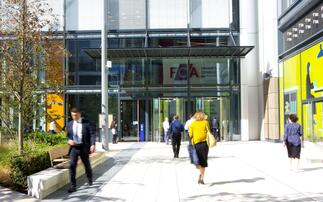Capital Economics expects the Bank of England to cut the UK's base rate from 0.5% in an effort to stimulate growth, after last week's GDP figure showed the economy is shrinking faster than feared.
The Office for National Statistics (ONS) revealed the UK economy contracted by 0.7% in the second quarter, far worse than analysts’ expectations of a 0.2% decline.
Capital Economics’ chief UK economist Vicky Redwood said the fall in GDP, coupled with the recent sharp pullback in inflation, will likely push the Bank of England’s Monetary Policy Committee (MPC) to return to more traditional methods of stimulating growth.
“The MPC could do more QE or cut rates further and we think they will cut rates by a quarter point, or even reduce them to 0.1%,” she said.
While the MPC has been content to leave rates at 0.5% for more than three years, instead using QE to boost the economy, more and more commentators are growing sceptical over its use.
They have warned rather than boost growth sufficiently, the £375bn of QE seen so far has merely created rallies in asset prices which are becoming increasingly short-lived.
Redwood said investors want to see a change in direction in policy from the MPC.
“People have become disillusioned with QE, and maybe they should revert to a more normal form of monetary policy,” she said.
The GDP figure – which confirmed the UK is in the longest recession since WWII – has also heaped pressure on Chancellor George Osborne, with critics labelling him
a “work experience” Chancellor.
As pressure builds on Osborne to act, the UK’s prized AAA-rating has come under threat, and fund managers and economists alike expect the UK to face a downgrade at some stage.
Redwood said: “We have already said we expect the government will find it harder to bring down debt ratios, and now we feel [a downgrade] is more likely than not.”












